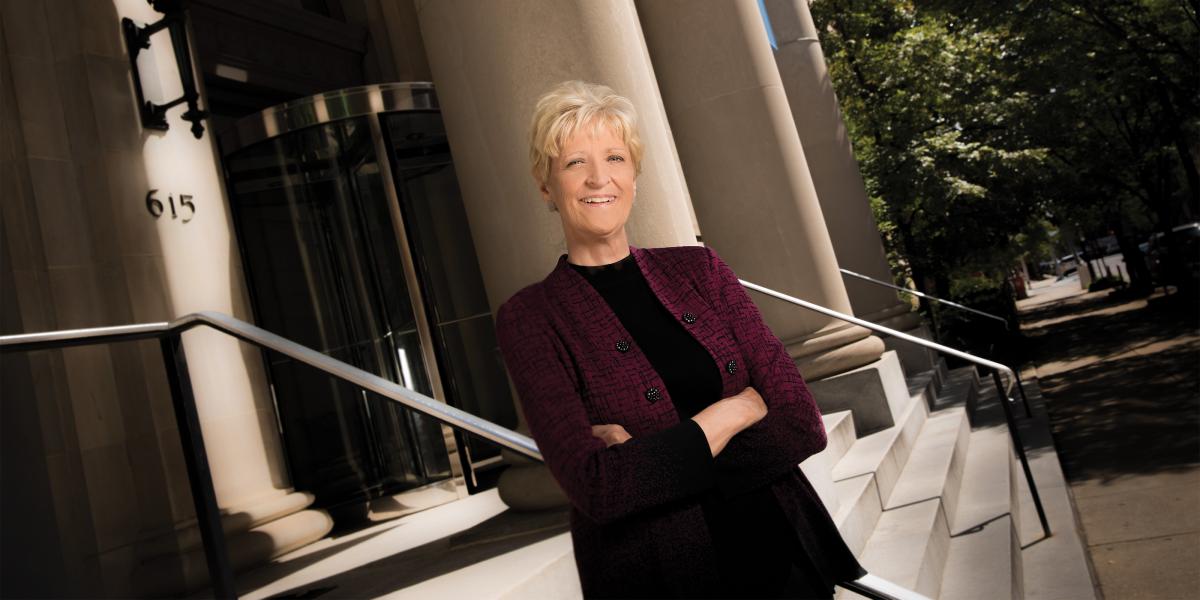The Case for Advocacy
Our work cannot stop with designing and executing a research study.
In my first six months as Dean, I’ve been struck by a growing sense of frustration that we are not doing enough to ensure that the good work we do translates into action. We value publishing in scientific journals, but we also know that at the end of the day, peer-reviewed articles by themselves don’t save children from malnutrition or prevent the next death from a drug overdose.
In so many areas, we know what to do to protect health and save lives, but we are not seeing the results. The public’s health only advances when we who do the research inform rational policy decisions and make people aware of the need for change. If we want demonstrable improvements in the public’s health, we need to intervene in the larger political and social arena and more fully engage in advocacy to inform decision making in our society.
For institutions like ours, nothing is more essential than conducting high-quality, unbiased research. It is core to our mission. It is why many of us have chosen to make our careers here at the School. However, it is also increasingly clear to me that our work cannot stop at the design and execution of a research study. We must engage with the media about our research and communicate our findings in ways that are readily comprehensible to the public. We need to give testimony at congressional hearings to help our political leaders act on the basis of evidence. We need to connect with leaders in our communities to make sure policies informed by public health scholarship are adopted. We need to help organizations that seek evidence-based policy change.
In other words, if our School’s mission is truly to improve the health of populations, we do not have the luxury of sitting in our ivory tower and hoping that our work gets into the right hands. We need only look at gun violence in the U.S. to see a public health crisis with a tragically flawed response. The opioid epidemic, too, cries out for the adoption of better, evidence-driven policies.
If we want to save more lives, we need to do more, but it’s essential to get it right so that we maximize our impact without damaging our credibility as researchers. The Bloomberg School has a long history of lifesaving advocacy. E.V. McCollum, who discovered vitamins A and D, advocated for better nutrition in magazine columns. The Center for a Livable Future has long led efforts to build a stronger, more equitable food system. The Bill & Melinda Gates Institute for Population and Reproductive Health has helped secure critical health gains for women through its research and advocacy. To help expand on these and other efforts, the Center for Public Health Advocacy was established in late 2016. With initial support from the Gates Institute, the Center has been successful in elevating the dialogue around advocacy and taking stock of what we are (and are not) doing across the School.
It is now time to up our game. That’s why I’m committed to strengthening advocacy at the Bloomberg School. While maintaining our critical role as an independent and unbiased source of evidence, we must:
- Engage communications and marketing experts who can help our faculty disseminate research findings in more accessible, nonacademic formats, such as factsheets, toolkits and compelling messages driven by personal narratives;
- Connect with relevant communities and policymakers early on in defining the problem at hand and “co-producing” our research to facilitate its translation into actionable programs and policies;
- Broaden our teaching of communications and advocacy skills to ensure that our students become public health professionals who are as skilled in advocacy as they are in science and public health practice; and
- Lead innovations in advocacy research.
Making these kinds of changes can’t happen in a vacuum. We are fortunate to have received a generous gift from Sid and Helaine Lerner to infuse the Center for Public Health Advocacy with new resources, including a named professorship, to help advance this important work. The gift celebrates two of our School’s greatest advocates for health—former deans Al Sommer and Mike Klag—by endowing the Sommer-Klag Decanal Professorship of the Practice in Public Health Advocacy. The new professorship will provide a permanent, full-time focus on health advocacy, allowing for the development of new courses, student mentoring and faculty collaborations. In addition, the gift will establish the Sommer-Klag Award in Public Health Advocacy, nationally recognizing an individual who has demonstrated the greatest impact on the public’s health through evidence-informed advocacy.
To further our understanding of how advocacy works to influence policy outcomes, the School has also committed to working with the Krieger School of Arts and Sciences and its Department of Political Science to jointly recruit a senior scholar to Johns Hopkins who is committed to the application of frameworks from political science—such as the study of advocacy and interest group behavior—to inform the health policy process.
More effective advocacy is key to improving population health. We need a concerted effort to define our roles and responsibilities as academics, to spell out what we should (and should not) do in advocacy and to do our part to ensure that organized interests doing the heavy lifting in the realm of advocacy are advancing policy on the basis of the strongest scientific evidence.
We already know much of what we need to do to save lives and promote well-being. Advocacy is an important tool for getting it done.
